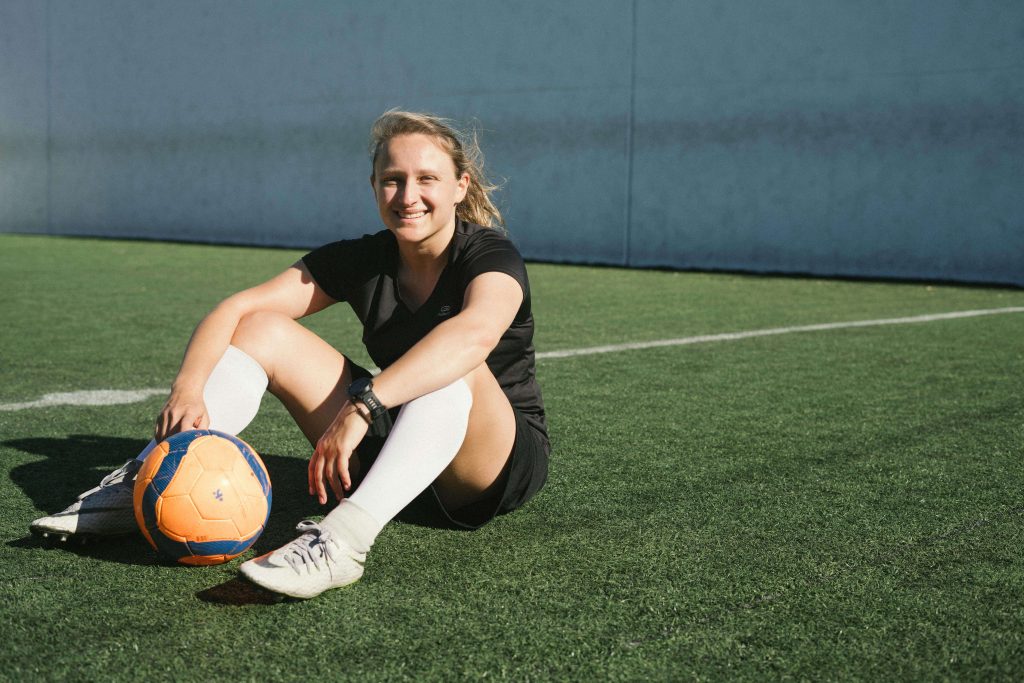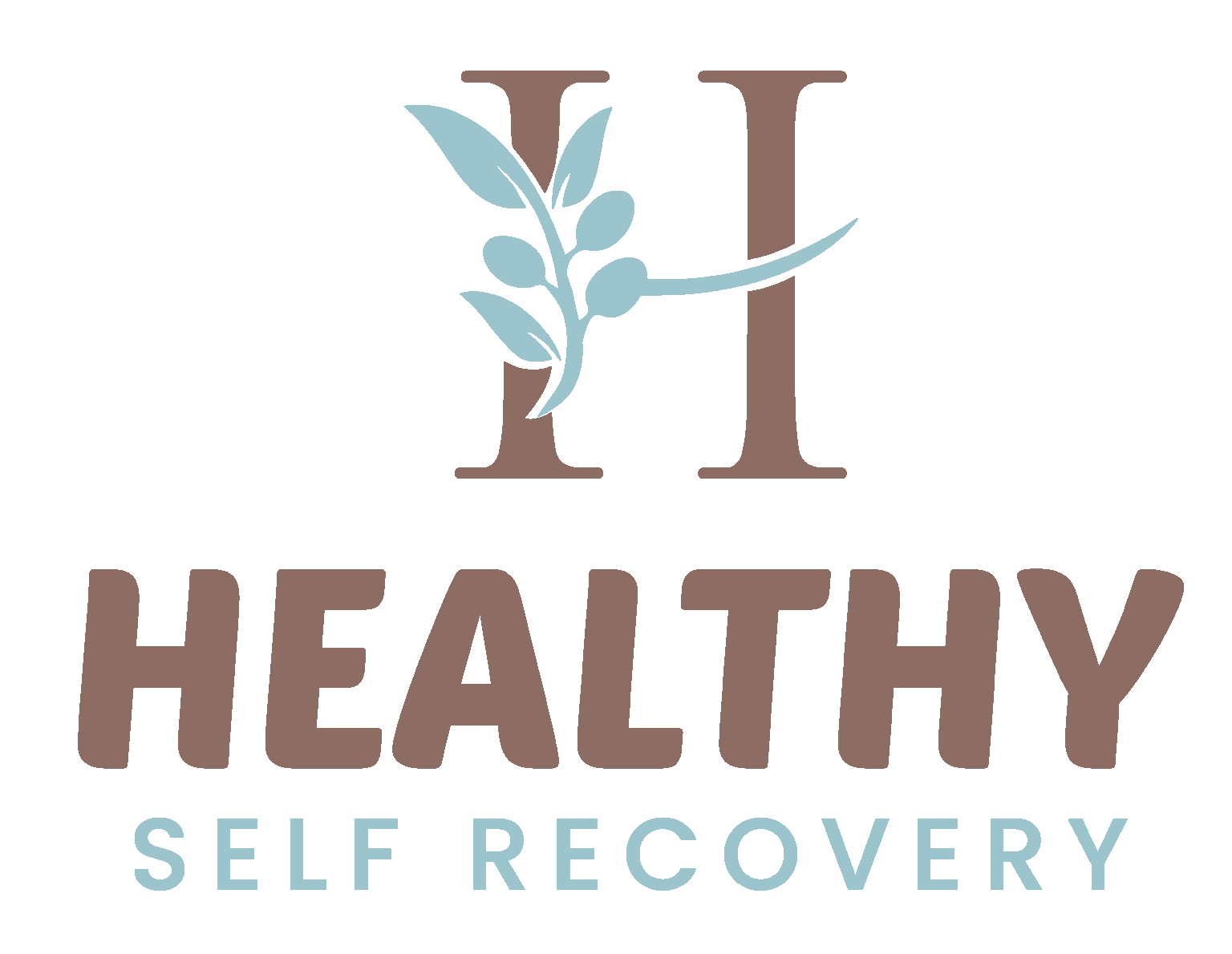Sports are known to have many benefits. They can boost your mood, build confidence, and create social connections. But for athletes, sports can also lead to a complicated relationship with food, weight, and body image. Research shows that athletes are more likely to develop eating disorders than people who don’t play sports. This article looks at the unique challenges athletes face that can lead to overtraining and disordered eating and how eating disorder recovery coaching can help them heal.

The Challenges Athletes Face That Can Predispose Them to Overtraining and Disordered Eating
- Competitive environment: Sports are a highly competitive and comparison-driven environment with distinct winners and losers, and it is this that pushes people to train harder and push themselves more to outperform their opponents. This mindset fits perfectly with the competitive nature of an eating disorder, and so it is easy for someone in this environment to slip into obsessive and compulsive training, cutting out food groups under the guise of performing better, embracing restriction as a way of manipulating their body shape to fit their sport.
- Increased focus on body shape and weight: By their very nature, all sports bring about an increased focus on our body’s ability to perform, but some sports in particular are heavily focused on body size and shape – for example, gymnastics, dancing, swimming, horse racing, boxing, running. That might come in the way of an ideal body type for that sport, weight restrictions,
- Pressure to perform: The constant demand to consistently deliver one’s best performance and to live up to increasingly higher standards can be an easy segue into disordered behaviours such as excessive training, calorie counting, compulsive exercise, and binge eating. Even when an athlete wins, the pressure does not ease off but rather mounts due to the demand to keep performing at that level.
Overtraining and Restriction as a Coping Mechanism
All of the challenges mentioned above can lead someone to overtrain and undereat. This might be an attempt to improve performance, reach a goal, or earn a spot in a competition. Some athletes train too much and restrict food to control their weight for their sport. This might mean trying to lose weight, keep it the same, or avoid gaining. Overtraining can also become a way to cope with stress and anxiety caused by constant pressure to perform.
How to know if you need help with overtraining and underfuelling?
- Exercise takes precedence over everything else in your life – family, friends, study, work
- You spend an uncommon amount of time exercising
- Exercise becomes compulsive – you can’t not train even if you are sick or the weather is inclement
- You feel extreme anxiety and agitation if you are not able to exercise
- You are constantly tired and unwell
- You are experiencing increasing injuries
- For women, your periods have become infrequent
- For men, your testosterone levels and libido have dropped
If this sounds like you or someone you care about, it could be time to seek out the help and support of an eating disorder recovery coach.

How Can Working with an Eating Disorder Recovery Coach Help?
Eating disorder recovery coaches are trained to work and support athletes to:
Learn to nourish their body consistently and adequately:
This often means challenging the harmful nutrition messages pushed by diet culture. Athletes learn why balanced, consistent nutrition is important—not just for training, but for overall well-being. Creating regular eating habits that are flexible and based on gentle nutrition helps support long-term health and energy, both in sports and in everyday life.
Identify and address emotional triggers
Recovery coaches work to help each person identify and become aware of the feelings, situations, and thoughts that create the stress and anxiety that lead to disordered eating behaviours and compulsive exercise as a means of coping. Having the awareness that, for example, fear of failure, frustration with injury, or performance anxiety creates a stress response means that someone is able to develop alternative and more effective strategies to manage these triggers.
Find alternative coping strategies
Eating disorder recovery coaches support athletes in replacing detrimental coping mechanisms such as restrictive eating, counting calories, compulsive exercise, and overtraining with constructive alternatives that are both helpful and promote resilience. These are often things like mindfulness, relaxation techniques, self-compassion, and reaching out to others for support.
Prioritse rest and recovery
The hustle culture we live in would tell us we need to be as productive and busy as possible; however, the truth is that Insufficient rest and sleep contribute not only to poor performance but tend to fuel disordered eating and anxiety. Learning to rest and allowing yourself time to sleep are two of the most important parts of recovery. They help repair the body from undereating and overtraining. Rest and sleep also improve athletic performance—and your overall quality of life.
Find their identity outside of sports
It is completely natural that for many athletes, much of their self-worth is derived from both their athletic achievements, their athletic body, and their identity as an athlete. Finding one’s identity outside of what one’s body can achieve or look like is key to loosening the grip on disordered eating behaviours. Recovery coaches work closely with clients to help them build a stronger sense of identity outside of athletics. This reduces the need to rely on body shape or performance as the only source of self-worth.
Ready to Heal Your Relationship with Food, Body, and Performance?
If you’re ready to explore how eating disorder recovery coaching can help you break free from disordered eating and compulsive exercise, I would be honored to support you. At Healthy Self Recovery, my goal is to walk alongside you as you reconnect with your body, rebuild your relationship with food, and reclaim your identity both on and off the field. You don’t have to navigate this alone—healing is possible, and you deserve to thrive not just as an athlete, but as a whole, empowered person.

Find Support Healing as an Athlete with Eating Disorder Recovery Coaching in England and Online Globally
If you’re caught in a cycle of overtraining, restriction, and performance pressure, you don’t have to face it alone. Eating disorder recovery coaching in England can help you reconnect with your body, fuel your performance, and rediscover your worth beyond athletics. At Healthy Self Recovery, we’re here to support your healing—so you can thrive both in sport and in life. Follow these three simple steps to get started:
- Contact me to schedule a free discovery call to see if Eating Disorder Recovery Coaching is right for you.
- Begin meeting with me, Marianna Miles, a British Eating Disorder Recovery Coach
- Start healing so you can thrive in both sport and life!
Additional Services Offered at Healthy Self Recovery
At Healthy Self Recovery, I provide individualized eating disorder recovery coaching tailored to meet you exactly where you are in your healing process. As your recovery coach, I offer hands-on support to help you move forward and make lasting, positive changes in your life. Whether you’re navigating career stress, the emotional shifts of postpartum, or the demands of athletic performance, my approach is rooted in compassion, practicality, and lived experience.
Our sessions will dive into the emotions, patterns, and beliefs that keep your eating disorder in place, with optional text support available between sessions for added encouragement and accountability. I also offer meal support sessions to help you challenge harmful food rules in a safe environment while building healthier coping strategies. Collaboration with your wider treatment team is always a priority, ensuring your care is cohesive and aligned with your overall recovery goals.
I work with clients throughout the UK—including Scotland, Wales, and Ireland—and offer online coaching to individuals around the world. Together, we’ll design a recovery path that fits your lifestyle and supports your journey toward greater freedom, confidence, and well-being.
Sources:
Glazer, J. L. (n.d.). Eating disorders among male athletes. Curr Sports Med Rep. https://pubmed.ncbi.nlm.nih.gov/19005355/
Sundgot-Borgen, J., & Torstveit, M. K. (2004). Prevalence of eating disorders in elite athletes is higher than in the general population. Clinical Journal of Sport Medicine, 14(1), 25–32.








